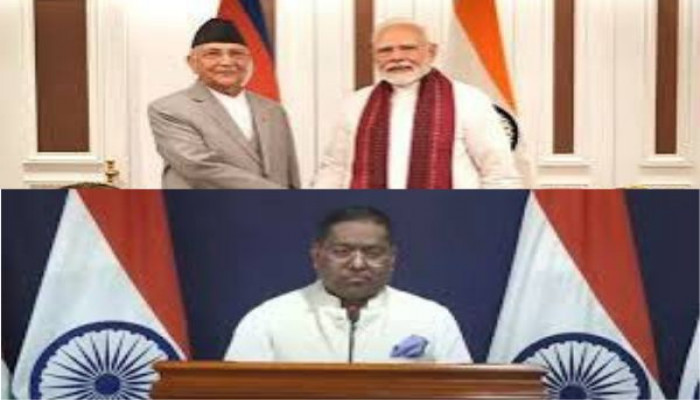MEA rejects Nepal’s claim over Lipulekh Pass as Kathmandu protests resumption of India China border trade
- In Reports
- 06:43 PM, Aug 21, 2025
- Myind Staff
India on Wednesday rejected Nepal’s claims over Lipulekh pass in Uttarakhand after Kathmandu asked New Delhi not to “undertake” any border related activities in the region. Earlier in the day, Nepal had staked its claim on the area and urged both India and China not to carry out border trade through the pass.
“As regards territorial claims, our position remains that such claims are neither justified nor based on historical facts and evidence. Any unilateral artificial enlargement of territorial claims is untenable,” Randhir Jaiswal, the official spokesperson of the Ministry of External Affairs, said in a statement.
“Our position in this regard has been consistent and clear. Border trade between India and China through Lipulekh pass commenced in 1954 and has been going on for decades. This trade had been disrupted in recent years due to Covid and other developments, and both sides have now agreed to resume it,” the statement added.
In 2020, Nepal had passed a constitutional amendment to redraw its map to include Lipulekh, Kalapani and Limpiyadhura as part of its territory, a position that India has consistently rejected.
In its statement on Wednesday, Nepal’s foreign ministry said that it is “clear that the official map of Nepal has been included in the constitution of Nepal, and that the map shows Limpiyadhura, Lipulekh and Kalapani east of the Mahakali River as integral parts of Nepal”.
It further said, “It is also known that the Nepalese government has been urging the Indian government not to undertake any activities such as road construction/expansion, border trade in the area. It is also known that the friendly country China has been informed that the area is Nepali territory.”
The latest dispute in ties between New Delhi and Kathmandu comes just days after Indian Foreign Secretary Vikram Misri travelled to Nepal to strengthen relations. Nepal’s prime minister K P Sharma Oli is expected to finally make his visit to India in mid-September, which would be his first since returning to office last year.
The delay in Oli’s visit to India has been notable given the traditionally close ties between the two neighbours. Oli had visited China in December last year and is expected to go there again this year for the Shanghai Cooperation Organisation Heads of State summit before travelling to India later in September. His visit to India is expected on 16 September.
Nepal’s statement came shortly after India and China agreed to work together to resume trade at the border posts at Shipki La, Nathu La and Lipulekh passes. The posts were first shut during the COVID-19 pandemic and later remained closed due to heightened tensions following the Galwan clashes.
In recent months, relations between India and China have improved, with Chinese Foreign Minister Wang Yi visiting New Delhi earlier this week for the 24th round of Special Representative talks on the boundary issue.
During Wang Yi’s visit, the two sides agreed to build their relationship on the basis of the 2005 boundary agreement, which marks a significant shift in diplomatic approach between New Delhi and Beijing. Since the clashes in Eastern Ladakh in 2020, India has maintained that peace and stability at the border are essential before discussing other matters. The 2005 agreement however separates the boundary question from the broader ties.
By agreeing to return to the 2005 framework, India and China have given a new direction to their ties. This development comes at a time when India’s relations with the United States have faced strains. US President Donald Trump has criticised India’s continued purchase of Russian oil and announced an additional 25 percent tariff on Indian imports which is set to take effect later this month.
Trump has also shown growing frustration over the lack of progress in negotiations for a bilateral trade agreement between India and the US. The next round of talks, scheduled for 25 August, is likely to be pushed to a later date.
Prime Minister Narendra Modi is set to travel to China on 31 August for the SCO summit. This will be his first visit to China since 2018.







Comments